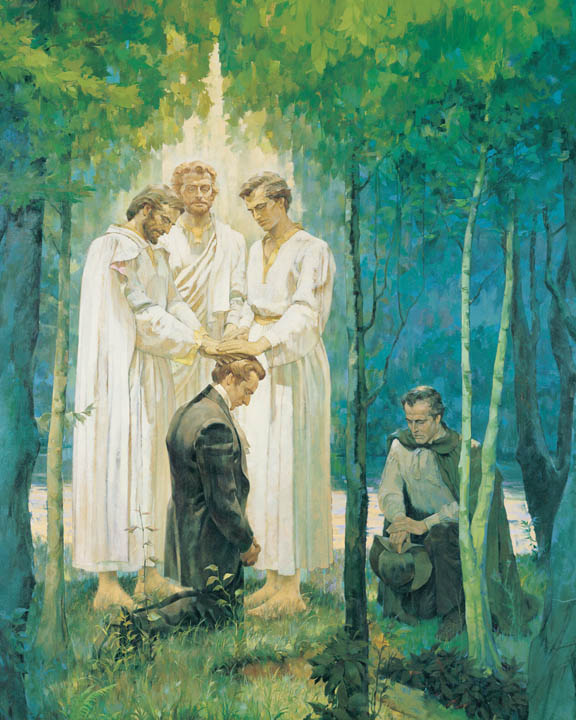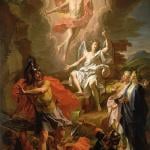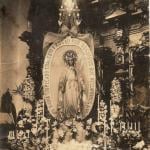
More preliminary notes on the apparent sincerity of Joseph Smith:
Even many of Joseph’s critics wrestled with the possibility that he might actually have been honest and sincere. Josiah Quincy sums up his account of his 1844 visit to Nauvoo with the comment that, “If the reader does not know just what to make of Joseph Smith, I cannot help him out of the difficulty. I myself stand helpless before the puzzle.”[1] In June 1851, a journalist connected with London’s Morning Chronicle published a piece entitled “The Mormons.” He did not accept Joseph Smith’s religious faith, and believed that Mormonism was conceived in fraud. “At the same time,” though, he wrote of Joseph,
there is much in his later career which seems to prove that he really believed what he asserted—that he imagined himself to be in reality what he pretended—the chosen medium to convey a new gospel to the world—the inspired of heaven, the dreamer of divine dreams, and the companion of angels. If he were an impostor, deliberately and coolly inventing, and pertinaciously propagating a falsehood, there is this much to be said, that never was an impostor more cruelly punished than he was, from the first moment of his appearance as a prophet to the last. Joseph Smith, in consequence of his pretensions to be a seer and prophet of God, lived a life of continual misery and persecution. He endured every kind of hardship, contumely and suffering. He was derided, assaulted and imprisoned. His life was one long scene of peril and distress, scarcely brightened by the brief beam of comparative repose which he enjoyed in his own city of Nauvoo. In the contempt showered upon his head his whole family shared. Father and mother, and brothers, wife and friends, were alike involved in the ignominy of his pretensions, and the sufferings that resulted. He lived for fourteen years amid vindictive enemies, who never missed an opportunity to vilify, to harass, and to destroy him; and he died at last an untimely and miserable death, involving in his fate a brother to whom he was tenderly attached. If anything can tend to encourage the supposition that Joseph Smith was a sincere enthusiast maddened with religious frenzies, as many have been before and will be after him—and that he had strong and invincible faith in his own high pretensions and divine missions, it is the notability that unless supported by such feelings, he would have renounced the unprofitable and ungrateful task, and sought refuge from persecution and misery in private life and honorable industry.[2]
The nineteenth century Chamber’s Encyclopedia said of Joseph Smith that
From his early years he was regarded as a visionary and a fanatic; a fact which is of the utmost importance as affording a clue to his real character, and an explanation of that otherwise unaccountable tenacity of purpose and moral heroism displayed in the midst of fiercest persecution. A mere impostor . . . would have broken down under such a tempest of opposition and hate as Smith’s preaching excited.[3]
“I really do believe,” says Joseph Smith’s non-Mormon biographer Robert Remini, “that he believed himself to be a prophet of God.”[4] He was “a man absolutely convinced that his religious authority came directly from God.”[5]
[1] Cite original source.
[2] Quoted in Cannon, Life of Joseph Smith the Prophet, 356. FIND ORIGINAL SOURCE.
[3] Find original.
[4] As quoted by Dennis Lythgoe, “Writer finds ‘his Joseph,’” Salt Lake City Deseret News (13 October 2002), E10.
[5] Remini, Joseph Smith, 87.
***
A small handful of my rather obsessive internet detractors, commenting on the series of posts I’ve recently done here regarding Joseph’s sincerity, have derisively pointed out that people can be sincere but wrong.
Which, of course, is entirely obvious.
I haven’t contended that Joseph’s sincerity proves his claims true. I’ve never argued anything of the sort.
But there are several ways of viewing him and his claims. These seem to be the leading candidates:
- He was an authentic prophet of God. His claims were true and he knew it.
- He was sincere but wrong and, essentially, insane. His claims were false but he didn’t know it.
- He was a cynical fraud. His claims were false and he knew it.
- He was a pious fraud. His claims were false (but somehow well-intentioned) and he knew it.
Of these, (4) may, in principle, be the most difficult for a believer to deal with, because it’s rather slippery. By contrast, in my judgment, (2) is relatively weak. There are simply too many corroborating witnesses to his pivotal experiences (or, if you prefer, co-conspirators behind them) and too many tangible, objectively real objects involved for Joseph’s claims to be dismissed as mere subjective fantasy.
In arguing for Joseph’s sincerity, I’m trying to show that (3) is unlikely. Doing so won’t prove (4) true — it also won’t account for the fall of the Roman Empire or explain quantum entanglement at a distance — but it’s important, in itself, for evaluating Joseph’s character and claims. It disposes of a major contention — not all of them, but a major one — against Joseph and against the claims of Mormonism.
As Sir Arthur Conan Doyle’s Sherlock Holmes puts it in “The Sign of Four,” “when you have eliminated the impossible, whatever remains, however improbable, must be the truth.”
***
Good, incisive critics can often be a blessing. They force a person to ground her arguments in solid facts and to refine her analysis and expression and even, on occasion, to revise her views.
By contrast, careless critics who lack intellectual seriousness offer little or nothing of value.
















